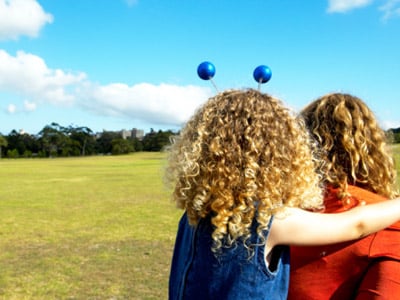 |
 |
In some horrible version of déjà vu, Barbara Morgan watched a second time as a crew of her friends and fellow astronauts died during a space shuttle mission when the Space Shuttle Columbia broke up over the skies of Texas on Feb. 1, 2003.
Morgan was also there when the Space Shuttle Challenger exploded 17 years earlier, having trained and served as Christa McAuliffe's backup as the first teacher in space.
But last August at age 55, Morgan finally made it into space as one of seven astronauts on the Space Shuttle Endeavor. She had waited 22 years.
Morgan is nominated as one of Beliefnet's Most Inspiring People of the Year for never giving up on her dream and for fulfilling McAuliffe's legacy of bringing the experience of space flight into classrooms.
Barbara Morgan was raised in Fresno, Calif. She began her teaching career in 1974 on Montana's Flathead Indian Reservation, where she taught remedial reading and math. She spent a year teaching in Ecuador before returning to teach second, third, and fourth grades at an elementary school in McCall, Idaho.
In 1985, NASA announced that McAuliffe, a teacher from Concord, N.H., would be the first teacher in space aboard the Space Shuttle Challenger. As her backup, Morgan spent six months training with McAuliffe, whom she described as a good friend and mentor, and the rest of Challenger's crew. On January 28, 1986, as the mission ended in an explosion that cost all seven astronauts their lives on, Morgan looked on with the crew's horrified families.
After the accident, Morgan returned to the classroom in Idaho. She continued her relationship with NASA by talking to students around the country about the space program. In 1998, NASA invited her to return and train as a mission specialist--a full-fledged astronaut position.
She was scheduled to fly to the International Space Station (ISS) on Nov. 13, 2003, but that mission was scuttled when tragedy struck again aboard the Space Shuttle Columbia. It was the same shuttle Morgan was to have flown on.
"It all goes back to what we are doing and why we are doing it, and space exploration is very, very important," Morgan told The Associated Press after the Columbia tragedy. "It's important to us as human beings and, certainly from my point of view as a teacher, it's crucial for our kids and for the future. In any bad situation, you figure out what you're going to do to try to make things better and go forward."
For Morgan, going forward meant staying with the space program. At NASA in Houston, she studied advanced mathematics, learned to operate the shuttle's robotic arm, and did mock space walks underwater. But it wasn't until last August that Morgan finally made it into orbit aboard the Space Shuttle Endeavor on a voyage to the ISS. While orbiting the Earth from Aug. 8 to 21, Morgan helped move 5,000 pounds of space cargo and relocate a stowage platform with the Endeavor's robotic arm. In between, she found time to talk from space with students in Idaho, Virginia, and Massachusetts who were following the mission.
For Morgan, it was the fulfillment of more than her own personal dream.

